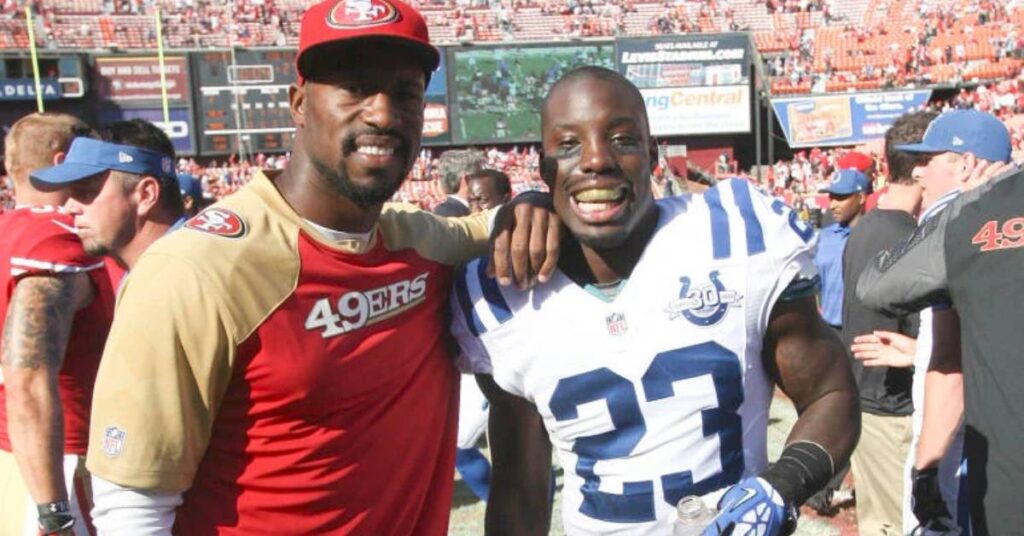Vontae Davis Autopsy Results: A Comprehensive Analysis
The autopsy results of Vontae Davis have sparked significant interest and discussion among fans, medical professionals, and the general public alike. As a former NFL player, his sudden retirement during halftime of a game raised many questions about the implications of player health and safety. Understanding the details surrounding his autopsy is crucial for those looking to grasp the complexities of athlete well-being.
In this article, we will delve into the autopsy results of Vontae Davis, exploring the medical findings, potential impacts on player health, and the broader implications for sports safety. Additionally, we will examine the reactions from various stakeholders, including fans, medical experts, and the NFL. By providing an in-depth look at this case, we aim to shed light on the critical issues surrounding athlete health and retirement.
As we navigate through the details of Vontae Davis's autopsy results, we will also highlight the importance of understanding the risks associated with professional sports. With head injuries and mental health concerns becoming increasingly prevalent in discussions about athlete safety, this topic is more relevant than ever. Join us as we unravel the findings and implications of this case.
Table of Contents
- Introduction
- Biography of Vontae Davis
- Autopsy Results Overview
- Medical Implications of the Findings
- Reactions from Fans and Experts
- NFL's Response to Player Health
- Future Research Directions
- Conclusion
Biography of Vontae Davis
Vontae Davis was born on May 27, 1988, in Washington, D.C. He played college football at the University of Illinois before being drafted into the NFL in 2009. Over the course of his career, he played for teams including the Miami Dolphins, Indianapolis Colts, and Buffalo Bills.
| Date of Birth | May 27, 1988 |
|---|---|
| College | University of Illinois |
| NFL Teams | Miami Dolphins, Indianapolis Colts, Buffalo Bills |
| Position | Cornerback |
Autopsy Results Overview
The autopsy results of Vontae Davis revealed several key findings that have raised concerns about the health of professional athletes. The examination conducted by a licensed pathologist provided insights into potential health issues that may have been present prior to his retirement.
Key Findings from the Autopsy
- Evidence of chronic traumatic encephalopathy (CTE)
- Inflammation of the brain
- Signs of potential cardiovascular issues
These findings not only highlight the physical toll that professional sports can take on athletes but also emphasize the need for ongoing research and intervention strategies to protect player health.
Medical Implications of the Findings
The presence of CTE and other health issues in Vontae Davis's autopsy results raises significant questions about the long-term effects of repeated head trauma in contact sports. CTE has been linked to various neurological and psychological symptoms, which can severely affect an athlete’s quality of life.
The Importance of Early Detection
Early detection and intervention for conditions like CTE are critical. Some implications of the findings include:
- Increased awareness of player health and safety protocols
- The need for regular health screenings for professional athletes
- Development of improved protective equipment to minimize head injuries
Reactions from Fans and Experts
The autopsy results of Vontae Davis elicited a variety of reactions from fans, medical professionals, and sports analysts. Many fans expressed their concerns over the health risks associated with professional football, while experts called for more comprehensive studies and preventive measures.
Public Sentiment
The public reaction to the findings has been largely one of shock and concern. Social media platforms have been flooded with discussions about the safety of players and the responsibilities of the NFL in protecting their athletes.
NFL's Response to Player Health
In light of the findings from Vontae Davis's autopsy, the NFL has faced increased pressure to address player health and safety. The league has implemented several initiatives aimed at reducing head injuries and improving overall player welfare.
Policy Changes and Initiatives
- Enhanced concussion protocols
- Ongoing education for players about the risks of head injuries
- Investment in research related to brain injuries in sports
Future Research Directions
The autopsy results of Vontae Davis underscore the urgent need for further research into the long-term effects of playing professional sports. Researchers and medical professionals are calling for more studies to understand how to better protect athletes from chronic conditions linked to their sport.
Potential Areas of Research
- Longitudinal studies on player health outcomes
- Impact of protective gear on injury rates
- Development of medical interventions for athletes suffering from brain injuries
Conclusion
In summary, the autopsy results of Vontae Davis provide critical insights into the health risks associated with professional sports. The findings highlight the importance of addressing player health and safety, not only for current athletes but also for future generations. We encourage readers to engage in this important conversation, whether by leaving comments, sharing this article, or exploring more resources on athlete health.
As we continue to learn more about the effects of sports on health, it is essential to advocate for the well-being of athletes at all levels. Thank you for reading, and we hope you'll return for more informative articles on this vital topic.
Article Recommendations
- Erome Kinglettes The Rise Of A Social Media Icon
- Exploring The Life And Love Of Kim Hyeyoon Who Is Her Husband
- Exploring The Life And Career Of Laypa Jenner A Rising Star In The Entertainment Industry


